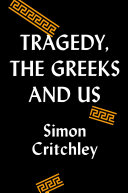2018 School Spending Survey Report
Tragedy, the Greeks, and Us
Pantheon. Apr. 2019. 336p. notes. bibliog. index. ISBN 9781524747947. $26; ebk. ISBN 9781524747954. LIT
COPY ISBN
VERDICT Combining a thorough knowledge of Attic drama, fluency with the scholarly literature, and an engaging wit, Critchley's treatment is sophisticated yet accessible to thoughtful general readers. [See Prepub Alert, 10/22/18.]
RELATED
ALREADY A SUBSCRIBER? LOG IN
We are currently offering this content for free. Sign up now to activate your personal profile, where you can save articles for future viewing




Comment Policy:
Comment should not be empty !!!